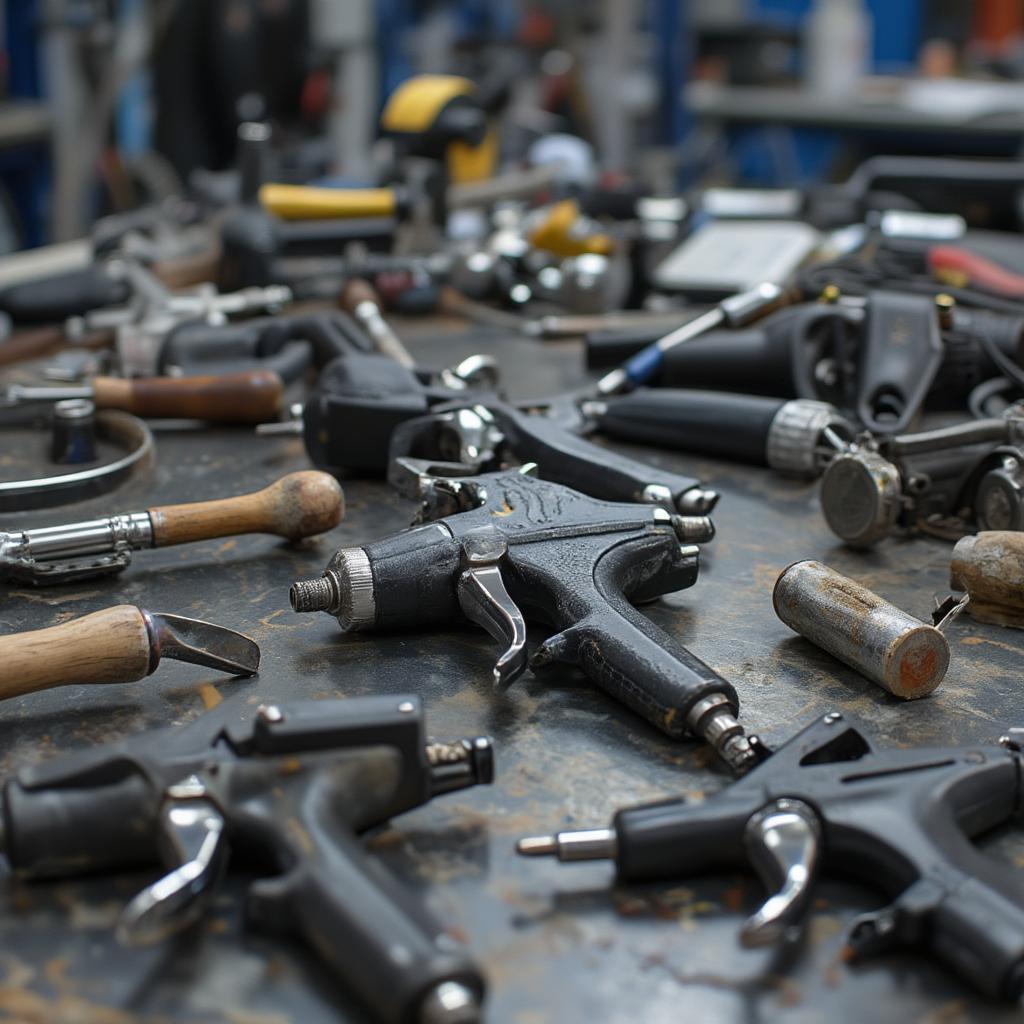Automotive Technician Classes: Your Path to a Thriving Career

Embarking on a career as an automotive technician is an exciting journey, filled with constant learning and hands-on problem-solving. For anyone passionate about cars, trucks, and the intricacies of their mechanics, taking the right Automotive Technician Classes is the first crucial step. These classes aren’t just about textbooks; they’re a blend of theory and practical experience, preparing you for the demands of the modern automotive world. Whether you’re a recent graduate or someone looking for a career change, understanding the value and types of available training is essential. Let’s delve into what these classes entail and how they can propel your automotive career.
Why Choose Automotive Technician Classes?
Choosing automotive technician classes isn’t just about getting a job; it’s about investing in a career that offers growth, stability, and constant learning. The automotive industry is constantly evolving, with new technologies emerging every year. Electric vehicles (EVs), advanced driver-assistance systems (ADAS), and sophisticated computer systems are now commonplace. Proper training is therefore critical to stay ahead and provide excellent service.
- Industry Demand: The demand for skilled automotive technicians remains high. As vehicles become more complex, the need for trained professionals who can diagnose and repair these systems will continue to rise.
- Career Progression: Starting with basic classes, technicians can advance to specialized roles such as master technician, service advisor, or even shop owner.
- Hands-on Skills: Automotive technician classes emphasize practical skills, which allows you to work directly on vehicles, applying what you learn in the classroom to real-world scenarios.
- Personal Satisfaction: Fixing vehicles and helping people get back on the road can be incredibly rewarding, providing a tangible sense of accomplishment.
What Do Automotive Technician Classes Cover?
Automotive technician classes cover a broad range of topics, ensuring graduates are well-rounded and prepared for various roles. Here are some key areas you can expect to explore:
- Engine Repair: Learn the fundamentals of engine operation, including how to diagnose and repair internal components, fuel systems, and cooling systems.
- Electrical Systems: Delve into the complex world of automotive wiring, sensors, and control modules. You’ll learn how to troubleshoot electrical faults and perform necessary repairs.
- Braking Systems: Understand the mechanics of various braking systems, from traditional hydraulic brakes to modern anti-lock braking systems (ABS), and learn how to maintain and repair them effectively.
- Suspension and Steering: Study the principles of vehicle handling and stability, focusing on the proper maintenance and repair of suspension and steering components.
- Transmission Systems: Gain expertise in both manual and automatic transmissions, learning how to diagnose and repair issues with shifting, gear changes, and other key transmission functions.
- Heating and Air Conditioning (HVAC): Automotive HVAC systems are complex, and proper training in this area is critical to understand and fix them, particularly in today’s advanced vehicles. You may want to take automotive air conditioning training for more specialized training.
- Diagnostics: Learn how to use diagnostic tools and techniques to identify problems, interpret data, and find solutions for various automotive issues.
“In my experience, the best automotive technicians are those who are always eager to learn and embrace new technologies,” says Robert Thompson, a seasoned automotive instructor with over 20 years of experience. “The industry is rapidly evolving, and staying current is key to success.”
Types of Automotive Technician Classes
There are various pathways to becoming an automotive technician, each tailored to meet different needs and career goals:
- Vocational Schools: These schools provide hands-on training with industry-standard equipment, often leading to certifications and diplomas. This is an excellent option for those wanting a career focused entirely on practical skills.
- Community Colleges: Many community colleges offer associate’s degrees in automotive technology. These programs combine classroom learning with practical experience, often with options for transfer to a four-year university. Consider researching local options for auto shop classes near me.
- Manufacturer Programs: Major automotive manufacturers like Toyota, Ford, and General Motors offer specialized training programs that often lead to employment within their networks. These programs focus specifically on the technologies and systems of their vehicles.
- Online Courses: While hands-on experience is critical for most of automotive training, online courses can help with theory. They often provide a more flexible learning schedule and can be a useful supplement to hands-on training.
- Apprenticeships: Working as an apprentice under an experienced technician allows you to learn while earning a wage. This path is useful for practical experience.

How to Choose the Right Classes for You
Choosing the right automotive technician classes depends on several factors:
- Your Career Goals: What kind of role do you want? If you dream of opening your own shop you may need more business management and community automotive repair experience, while some may want to specialize in diagnostics and electronics. If you want to get into automotive painting, then automotive paint schools near me is a good option.
- Your Learning Style: Do you prefer hands-on learning or classroom instruction? Some programs have a strong practical focus, while others are more theoretical.
- Program Accreditation: Ensure the program is accredited by a reputable organization to ensure the quality of training.
- Cost and Funding: Consider the cost of tuition and whether financial aid or scholarships are available. You may want to research tuition and compare the value of each school before committing.
- Location and Schedule: Choose a program that fits your location and schedule. You may want to attend a school near your place of work or home, and the scheduling must work around your family obligations.
The Importance of Hands-on Training
A significant part of becoming a successful automotive technician involves gaining practical experience. This hands-on training allows students to apply the theory they learn in class to real-world situations. Look for programs that offer:
- State-of-the-art labs: These labs should contain the latest tools and equipment for diagnostics and repair.
- Real vehicles: Students should have the opportunity to work on a variety of vehicles, including different makes and models.
- Experienced instructors: Look for instructors with real-world experience in the automotive industry who can guide students through the repair process.
“We focus on developing diagnostic skills,” explains Sarah Nguyen, department head at a local automotive training facility. “It’s not enough to just fix the problem; students need to understand why it happened and how to prevent it in the future.”
Advancements in Automotive Technology
The automotive industry is continually innovating and incorporating advanced technology. Modern vehicles are packed with sensors, computers, and electric motors. Training programs now include:
- Hybrid and Electric Vehicle Systems: Learn about the unique aspects of hybrid and electric vehicles, including battery technology, regenerative braking, and power electronics.
- Advanced Driver-Assistance Systems (ADAS): These systems are becoming increasingly common, and technicians need to understand how they operate and how to calibrate them correctly.
- Onboard Diagnostics (OBD) Systems: Learn how to use scan tools to access and interpret data from the vehicle’s computer system.
- Connectivity and Infotainment: Today’s vehicles include advanced connectivity features, and technicians are increasingly needed to troubleshoot and resolve issues in this area.

The Future of Automotive Technician Classes
As the automotive industry continues to evolve, so will automotive technician classes. Future trends include:
- Increased use of simulation software: Simulation software will allow students to train in a virtual environment, reducing the cost and risk of working on real vehicles.
- Focus on data analysis: Technicians will increasingly need to be able to interpret large amounts of data to diagnose and repair problems.
- Emphasis on electric and alternative fuels: As EVs and other alternative fuel vehicles become more common, there will be a greater need for technicians who specialize in these systems.
- Integration of AI and machine learning: AI and machine learning will be increasingly used in diagnostic tools and may eventually be integrated into automotive training.
- Advanced electronics training: As the vehicles become more complex and electronic-heavy, training must keep pace with current trends, and a good school will focus on automotive mechanics and electronics.
Conclusion
Automotive technician classes are an invaluable starting point for a fulfilling and financially rewarding career. With the automotive industry’s constant advancements, the demand for skilled technicians is projected to grow. Whether you’re seeking vocational training, a college degree, or specialized manufacturer certification, it is important to research, evaluate programs, and make informed decisions. By gaining the necessary training and combining that with practical hands-on experience, you’ll be setting the stage for a successful and long-lasting career as an automotive technician, making sure that you too can contribute to keeping people moving.
FAQ about Automotive Technician Classes
-
What are the basic entry requirements for automotive technician classes?
Typically, a high school diploma or GED is required. Some programs may also require a minimum age or specific course prerequisites, such as math or science courses. It’s best to check the specific requirements of the program you are interested in. -
How long does it typically take to complete an automotive technician program?
The duration varies depending on the program. Certificate programs can take a few months to a year, while associate’s degrees typically take two years. Apprenticeships usually last from three to five years. -
Will completing automotive technician classes guarantee me a job?
While completing classes does not guarantee a job, it significantly improves your chances. Many programs have strong connections with local auto shops and dealerships, which provides networking and employment opportunities for their students. -
What are the average starting salaries for automotive technicians?
Starting salaries vary depending on factors such as location, experience, and qualifications. According to the Bureau of Labor Statistics, the median annual wage for automotive service technicians and mechanics was around $46,000 as of May 2022. -
What types of tools and equipment will I learn to use in automotive technician classes?
You’ll learn to use a wide range of tools, including hand tools (wrenches, sockets, screwdrivers), power tools (impact wrenches, drills), diagnostic equipment (scan tools, multimeters), and specialized tools related to specific systems. -
Are there any continuing education requirements for automotive technicians?
Continuing education is important to keep up with the latest automotive technology. Many technicians choose to get ASE (Automotive Service Excellence) certifications and re-certify periodically, which usually requires taking additional training and exams. -
Can I specialize in a specific area of automotive repair?
Yes, after taking introductory courses, technicians can specialize in areas like engine repair, electrical systems, brake systems, or hybrid and electric vehicles. Specializations are often pursued after getting some work experience and deciding where your interests lie. -
Is it possible to become a certified automotive technician?
Yes, the Automotive Service Excellence (ASE) offers certifications across various categories. ASE certification is widely recognized in the automotive industry, and getting ASE certifications can enhance your credibility and earning potential. -
Do I need to purchase my own tools to complete automotive technician classes?
Some programs provide tools for student use during class, but many encourage or require students to have their own basic set of tools. The school will often have lists of required tools and where to buy them at a discount.




